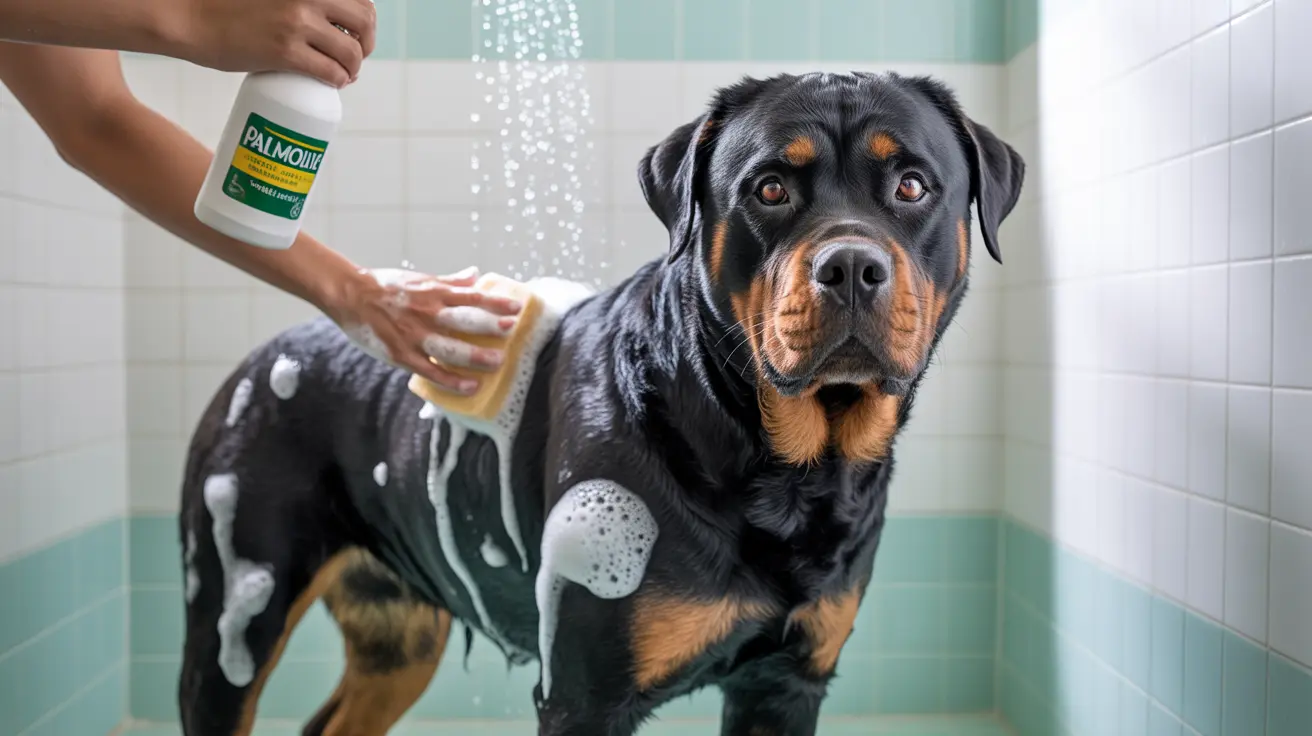Understanding the Flea-Fighting Properties of Palmolive
When faced with a flea infestation, many pet owners search for quick solutions using household items. Palmolive dish soap has gained attention as a potential flea treatment, but understanding its effectiveness and limitations is crucial for pet safety and successful pest control.
While Palmolive can kill adult fleas through its surfactant properties, it's important to recognize that this common household product is not designed or approved for pet use. Let's explore the science behind how Palmolive affects fleas and what pet owners need to know about using it safely.
How Palmolive Works Against Fleas
Palmolive dish soap works primarily by breaking down the waxy coating on fleas' exoskeletons. This action causes adult fleas to dehydrate and eventually die. Additionally, the soap reduces surface tension in water, making it easier for fleas to drown during the bathing process.
However, this mechanism only affects adult fleas currently on your pet's body - which typically represent just 5% of a total flea infestation. The remaining 95% exists in various life stages throughout your home environment.
Limitations and Risks of Using Palmolive
Limited Effectiveness
While Palmolive can kill adult fleas on contact, it offers no residual protection. This means new fleas can jump onto your pet immediately after the bath. Furthermore, the soap cannot prevent flea eggs from hatching or stop the development of existing larvae and pupae.
Potential Health Concerns
Dish soaps like Palmolive are formulated to cut through grease on dishes, making them harsh on pets' sensitive skin. Regular use can:
- Strip natural protective oils from your pet's coat
- Cause skin irritation and dryness
- Lead to excessive scratching
- Potentially trigger allergic reactions
- Create vulnerability to skin infections
Better Alternatives for Flea Control
Instead of relying on Palmolive, veterinarians recommend these more effective solutions:
- Veterinary-approved topical treatments
- Oral flea medications
- Pet-specific flea shampoos
- Environmental flea control products
- Regular grooming with flea combs
These options are specifically designed for pets and provide longer-lasting protection while maintaining coat and skin health.
When to Use Palmolive as an Emergency Solution
If you must use Palmolive as a temporary measure, follow these guidelines:
- Use only in emergency situations when proper flea treatments aren't immediately available
- Dilute the soap appropriately
- Rinse thoroughly to remove all soap residue
- Follow up with a pet-specific moisturizing conditioner
- Seek veterinary-approved flea treatment as soon as possible
Frequently Asked Questions
Does Palmolive dish soap effectively kill fleas on pets?
Yes, Palmolive can kill adult fleas through direct contact during bathing, but it only addresses a small portion of the flea problem and provides no lasting protection.
Can Palmolive soap be used as a long-term flea control method for cats and dogs?
No, Palmolive should not be used as a long-term solution. It's only suitable for emergency situations and should be replaced with veterinary-approved flea treatments as soon as possible.
Is it safe to use Palmolive dish soap regularly on my pet's skin and coat?
No, regular use of Palmolive can damage your pet's skin and coat by stripping away natural protective oils, potentially leading to irritation and other skin problems.
How does Palmolive dish soap affect different stages of the flea life cycle?
Palmolive only kills adult fleas on contact. It has no effect on flea eggs, larvae, or pupae, which make up 95% of a typical flea infestation.
What are the best alternative flea treatments recommended by veterinarians instead of Palmolive?
Veterinarians recommend topical flea preventatives, oral medications, and pet-specific flea shampoos, combined with environmental control measures like regular vacuuming and washing pet bedding.
Conclusion
While Palmolive can kill adult fleas in a pinch, it's not a complete or safe long-term solution for flea control. Pet owners should prioritize veterinary-approved flea treatments that provide comprehensive protection while maintaining their pets' skin and coat health. Remember, effective flea control requires addressing both the parasites on your pet and those in your home environment.






